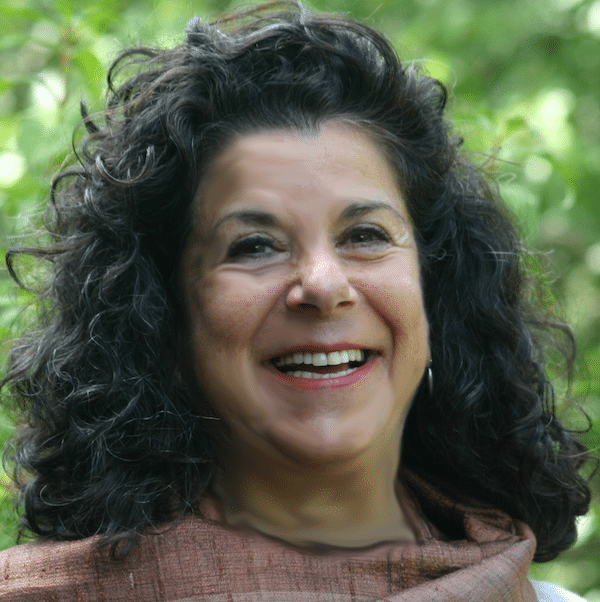BRAIN HEALTH and our ENVIRONMENT
Living in our modern world, we are all increasingly challenged knowing that our external environment is interconnected to our overall health and wellbeing. This Earth Day, let’s look at the environment’s impact on our Brain Health.
Environmental concerns range from contaminated water, air pollution, and the increasing amounts of chemicals applied in agriculture permeating our food supply. Our modern processed foods are often depleted of protective plant-based phytonutrients that can filter, neutralize, and detoxify many potentially harmful chemicals we inevitably encounter in our daily lives.
Food products too often are filled with additional artificial colorings, preservatives, flavorings, and many industrial ingredients. Our cumulative toxic “body burden” stresses our immune system and compromises our body’s ability to detoxify and eliminate many of these harmful substances that also challenge our brain and cognition.
Increased global awareness of our environment’s impact on our health includes sea-level rise, the threat of fracking, nuclear power plants, high-voltage power lines, and the ever-expanding arctic atmospheric ozone hole have all gained increasing attention in both public forums and in research. Opportunistic organisms including bacteria, mold, and viral species are threatening our health and attributed to the environmental changes altering all ecosystems.
Brain Health
Ongoing exposures can increase susceptibility to developing cognitive impairment, dementia, and Alzheimer’s disease. Dietary influences and choices, lifestyle, and genetic makeup all play a role in maintaining a healthy brain throughout the lifecycle. In all cases, it is prudent to consider environmental toxins and exposures as risk factors in overall health, immune. and cognitive function. The hopeful news is that many environmental exposures that challenge brain function can be eliminated including heavy metals, chemicals, and mold.
For example, according to multiple research studies, environmental contributors that can impact memory include lead, aluminum, arsenic and mercury can result in accelerated cognitive decline in susceptible individuals. For example, those tested that show higher levels of lead had an additional 15 years of cognitive aging compared to those with reduced exposure.
Since there is no safe level of lead exposure, it is advised to avoid exposure to it in every way possible. Lead is found in old pipes, and in paint that was used prior to a 1978 ban. Testing for heavy metals, along with other chemical exposures, is fundamental in assessing and treating those with cognitive decline.
This year on Earth Day, explore your unique environmental history and how your environmental exposures might have impacted your overall health and your brain and those of your clients and patients, family and community. Through environmental assessment, testing, education, and coaching, we work to develop an environmental health plan that will support your brain health and overall health and well-being.
Tips for Earth Day, and Every Day
Implementing Environmental Health Prevention Strategies into our daily lives
- Choose your food wisely; eat organically grown and raised foods when possible.
- Monitor fish consumption. Large, deep-water “fatty” fish such as tuna and swordfish may contain higher levels of synthetic chemicals and heavy metals, Better choices are wild-caught salmon, sardines, and cod.
- The Environmental Working Group database (www.ewg.org) offers guidelines on the fruits and vegetables containing both the highest pesticide residues and the lowest. Produce containing the highest pesticide levels include peaches, apples, bell peppers, celery, nectarines, strawberries, cherries, lettuce, grapes, pears, spinach, and potatoes.
- Support your body’s natural ability to detoxify by exercising and sweating on a regular basis. Use an infrared sauna.
- Get regular sleep (you detoxify at night) and drink plenty of clean (or filtered) water.
- Drink beverages such as green tea that contain antioxidants and phytonutrients that can assist the body to rid itself of toxins.
- If planning a pregnancy or breastfeeding, be vigilant about chemicals and eliminate as many as possible for one year prior to conception. Guidelines for pregnant women on eating fish are listed at Americanpregnancy.org/pregnancyhealth/fishmercury.htm.
- Become an environmental detective. Investigate the chemicals in your home, work, and community environments.
- Know your water supply. Determine whether your local community’s water testing program checks for hormone-disrupting chemicals and heavy metals. Not all household filters work effectively on chemicals, and, unfortunately, not all bottled water is checked. Read water quality reports. If you drink purified water out of plastic bottles, do not leave the bottles in the car or the hot sun for any length of time; heat activates the molecules in the plastic, which increases the rate at which the polycarbons leach into the water.
- Avoid using plastics. If you do use plastics, the safest plastics are marked with the recycling codes 2, 4, and 5.
- Do not let infants chew on soft plastic toys and never microwave food in a plastic bowl or covered in plastic wrap. A good rule of thumb is that the softer the plastic, the more chemicals it contains. Assess the amount of plastic in your life and try to reduce it by five. For example, bring a reusable mug to the local coffee shop, buy a refillable glass or earthenware water jug, invest in glass food storage containers that can be washed and reused for a lifetime, and use reusable cloth totes for groceries.
- Exercise your rights as a consumer—never doubt the power of consumer demand. Ask for green products when you do not see them in your neighborhood stores.
- If you have a talent for supporting community awareness, use it to develop community groups and work with public officials to develop ordinances regarding the use of chemicals in public places.
- Encourage youth to learn more about environmental issues and to pursue research into redesigning our future.
- Support elected officials who make a clean environment their priority. Join national campaigns to support health policy change.
On Earth Day, and everyday.. together, we can create a healthier future for us all.

As Co-Founder of the International Nurse Coach Association for over a decade, Susan has been teaching and developing coaching program and currently through the Integrative Nurse Coach® Academy. She is Board Certified in Health and Wellness Coaching, Holistic Nursing, and Clinical Nutrition. Susan has authored several chapters on Nutrition and Environmental Health for Holistic Nursing, Integrative Nursing, and Nurse Leadership textbooks. She has co-authored Nurse Coaching and Self-Assessment chapters in; Holistic Nursing: A Handbook for Practice, 7th edition (2015-2020) and is co-author of the award winning book (ANA Gold Seal, 2015) Nurse Coaching: Integrative Approaches for Health and Wellbeing (2015) and The Art and Science of Nurse Coaching, an ANA Publication (2013), that led the way to establishing the standards for practice in the emerging Nurse Coach role. For the past 20 years, she has been the Nurse Coach and Nutrition consultant for Special Immunology Services at Mercy Hospital in Miami and is currently the Director of Nurse Coaching at Rezilir Health in Hollywood, Florida. Susan continues to integrate lifestyle health and wellness education into diverse communities, bringing her expertise and passion as a nurse, clinical nutritionist, and medical anthropologist. She has developed and implemented integrative health initiatives for diverse community organizations including the Yellow Courtyard, Integrative Health Symposium, Urban Zen, New York Open Center, The Lower East Side Girls Club, Kripalu, Omega Institute, and the University of Miami and Florida Atlantic University. As a concerned global citizen, Susan is the founder and education director of the Earthrose Institute, a not-for-profit organization dedicated to environmental health education and advocacy. She maintains a private practice as an Integrative Nurse Coach® with a focus on nutrition and the environment.
- Susan Luck (1948-2022)
- Susan Luck (1948-2022)
- Susan Luck (1948-2022)
- Susan Luck (1948-2022)






